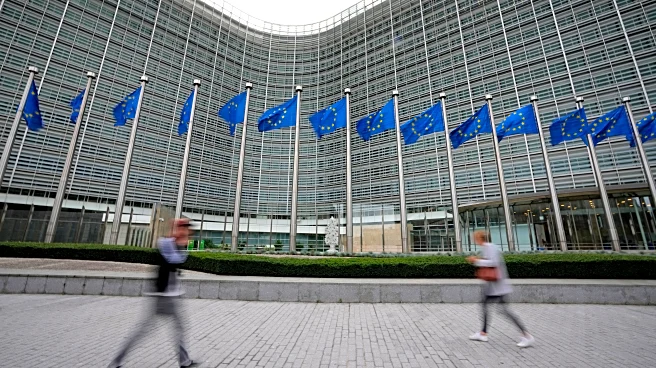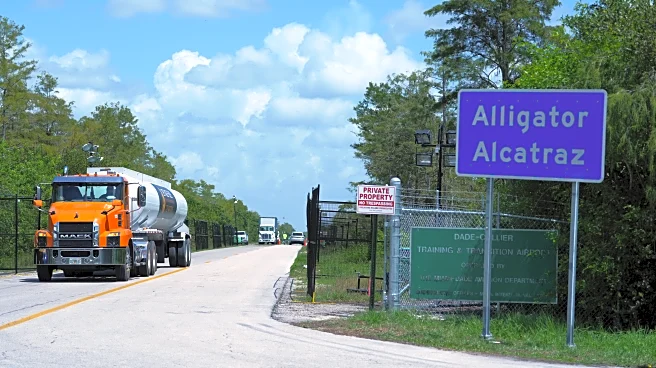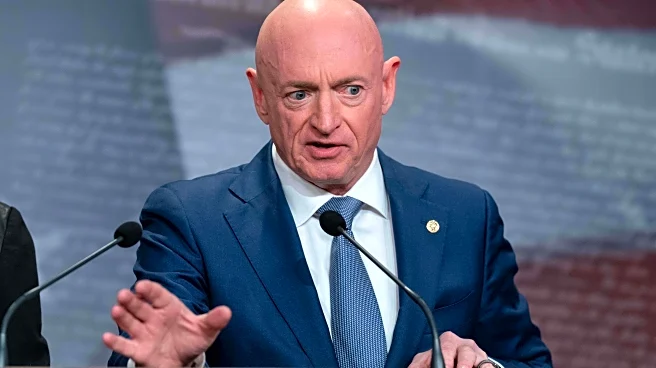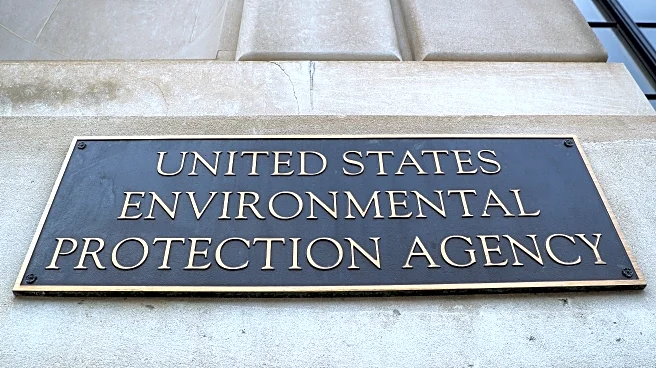What's Happening?
Robbins Geller Rudman & Dowd LLP has announced a class action lawsuit against Fluor Corporation, alleging violations of the Securities Exchange Act of 1934. The lawsuit, filed in the Northern District of Texas, claims that Fluor and certain executives made false or misleading statements regarding the company's financial health and project costs. The lawsuit covers securities purchased between February 18, 2025, and July 31, 2025. Fluor's infrastructure projects, including the Gordie Howe International Bridge and major highways in Texas, reportedly faced cost overruns due to subcontractor errors and economic uncertainties. These issues allegedly led to a significant decline in Fluor's stock price following disappointing financial results for the second quarter of 2025.
Why It's Important?
The lawsuit against Fluor Corporation highlights the potential financial risks and accountability issues within large infrastructure projects. If successful, the class action could lead to substantial financial compensation for affected investors, impacting Fluor's financial stability and reputation. The case underscores the importance of transparency and accurate financial reporting in maintaining investor trust. It also reflects broader economic challenges, such as increased project costs and reduced capital spending, which can affect corporate performance and investor confidence.
What's Next?
Investors who purchased Fluor securities during the specified period have until November 14, 2025, to seek appointment as lead plaintiff in the lawsuit. The lead plaintiff will represent the class in directing the litigation and can choose a law firm to handle the case. The outcome of the lawsuit could influence Fluor's future financial disclosures and project management strategies. Additionally, the case may prompt other companies to reassess their risk management and reporting practices to avoid similar legal challenges.
Beyond the Headlines
The lawsuit against Fluor Corporation may have broader implications for the engineering and construction industry, particularly regarding project management and financial accountability. It raises questions about the effectiveness of risk mitigation strategies and the impact of economic uncertainties on large-scale infrastructure projects. The case could lead to increased scrutiny of corporate governance practices and encourage more rigorous oversight by investors and regulators.









